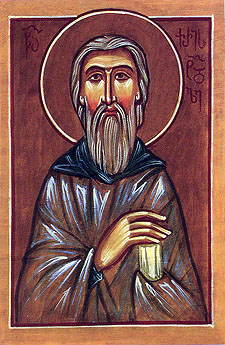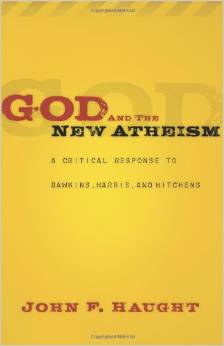|
|||
|---|---|---|---|
| This weekly bulletin insert complements the curriculum published by the Department of Christian Education of the Orthodox Church in America. This and many other Christian Education resources are available at http://dce.oca.org. | |||

The Church celebrates the memory of the Venerable Christodoulos the Philosopher, born in the 11th century. Young John, as he was named at birth, loved to learn from books and read everything he could get his hands on. Though John especially loved Scripture and knew he wanted to live by Christ's teachings, his curious mind led him to read about other faiths as well. He enjoyed discussions with wise people, which were another source of learning. He further broadened his knowledge by learning several languages. John also admired and was inspired by the simple, prayerful life of monastics. So when he told his mother and father that he wanted to become a monk, they weren't surprised. Unlike some parents who are concerned that they will never have grandchildren, they raised no objections. He was tonsured with the name Christodoulos, and as a monk he continued to think and learn. Because he particularly wanted to be able to defend Christianity in a hostile environment, he memorized the holy book of Islam, the Quran. This enabled him to debate with anyone, and to show the truth of Christianity clearly. Saint Christodoulos spent many years on the island of Patmos, where he established a famous monastery named for another person of learning he greatly admired: Saint John the Theologian. The monastery's library preserved many precious books that might otherwise have been lost in the violent attacks frequently made upon Christians in those times. That preservation made it possible for others to learn and think deeply, a fitting legacy for a saint referred to as "Philosopher." In our own day, some writers who are called the "new atheists" deny that our rational minds can lead us to God. They contend that the mind is only concerned with facts that can be demonstrated, and that faith is not based on such facts. Therefore faith is not rational, and not real. In his book "God and the New Atheism" John F. Haught offers several convincing objections to this assertion. One is that the new atheists, without seeming to realize it, place complete faith in the ability of their own minds to understand reality. Haught asks, "If our minds are nothing but the accidental outcome of a mindless evolutionary process, why should we trust them at all?" He also points out that the atheists have faith that there is truth to be understood, and that is worth trying to understand. But they have no basis for this faith; it's simply an assumption. 
What is the faith of believers in God? Haught says it certainly is not the "belief without evidence" that the new atheists accuse it of being. Rather it is "...an adventurous movement of trust that opens reason up to its appropriate living space, namely, the inexhaustibly deep dimension of Being, Meaning, Truth, and Goodness...Faith is what opens our minds to the infinite horizon in which alone reason can breathe freely..." Saint Christodoulos, who used his mind to investigate that infinite horizon, would agree. |
|||
